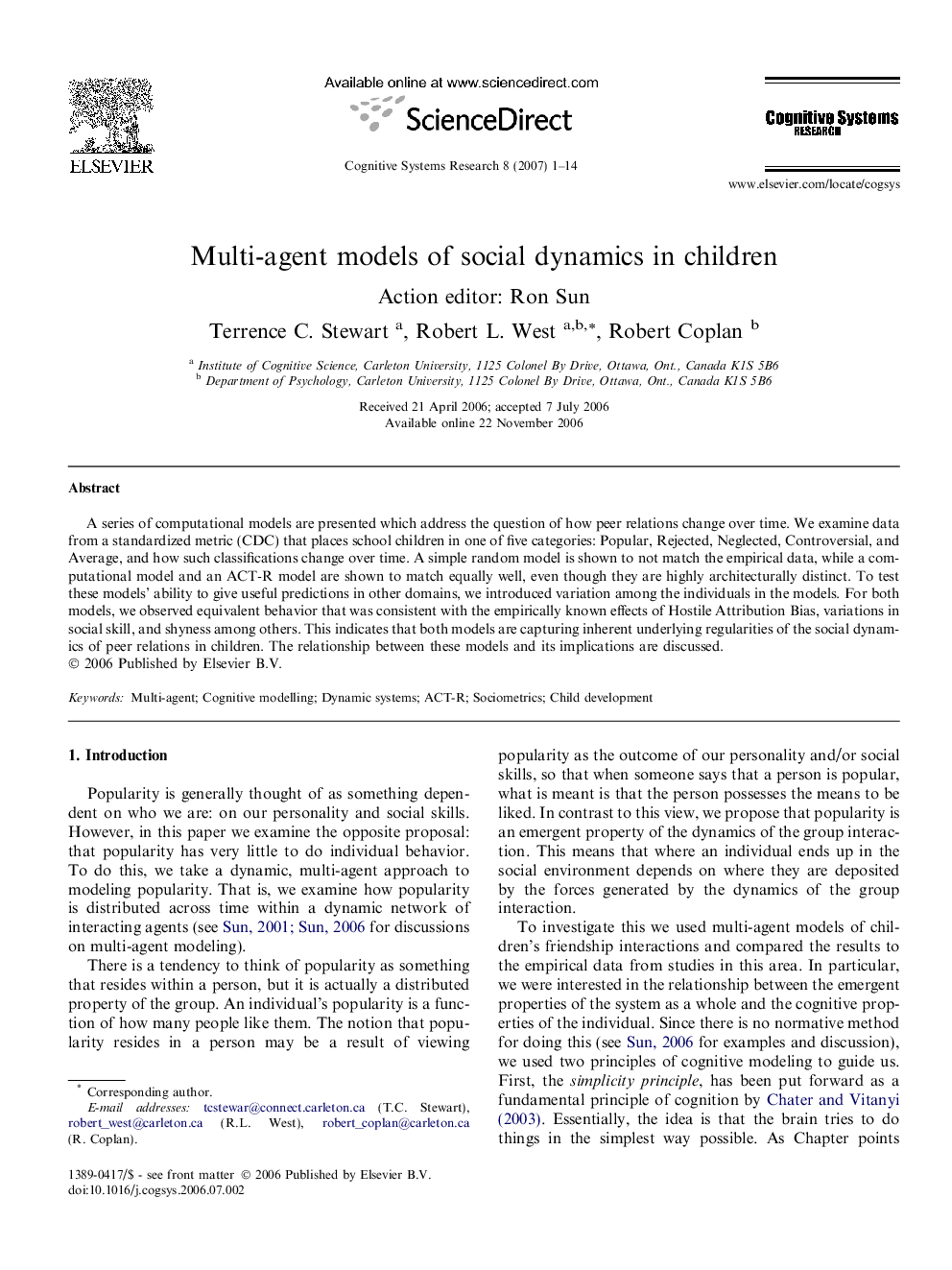| Article ID | Journal | Published Year | Pages | File Type |
|---|---|---|---|---|
| 378630 | Cognitive Systems Research | 2007 | 14 Pages |
A series of computational models are presented which address the question of how peer relations change over time. We examine data from a standardized metric (CDC) that places school children in one of five categories: Popular, Rejected, Neglected, Controversial, and Average, and how such classifications change over time. A simple random model is shown to not match the empirical data, while a computational model and an ACT-R model are shown to match equally well, even though they are highly architecturally distinct. To test these models’ ability to give useful predictions in other domains, we introduced variation among the individuals in the models. For both models, we observed equivalent behavior that was consistent with the empirically known effects of Hostile Attribution Bias, variations in social skill, and shyness among others. This indicates that both models are capturing inherent underlying regularities of the social dynamics of peer relations in children. The relationship between these models and its implications are discussed.
